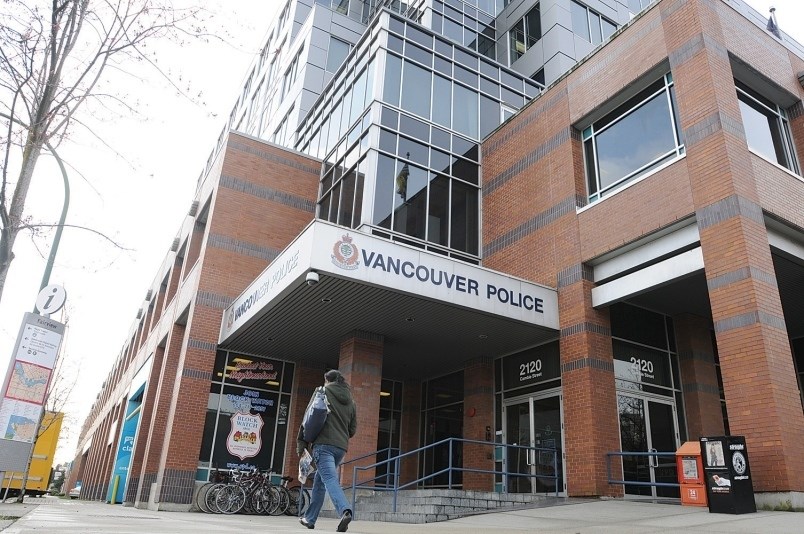The number of sexual assault reports filed with Vancouver police over the past seven years totalled 3,890 but only 823 charges were recommended to Crown counsel, according to recent data posted on the department’s website.
The data, which covers the period from 2015 to 2021, shows an average of 556 reports per year, with the highest numbers reported in 2015 (601) and 2021 (605). The lowest year recorded was in 2015, when 505 reports were made.
The 823 charges recommended equates to less than 22 per cent of total reports.
The data does not break down how many reports resulted in multiple charges being recommended for a single case, or whether each recommended charge was tied to one report of sexual assault.
How many cases deemed “unfounded” by police is also not indicated, although the VPD began including those cases in the data in 2018 to ensure consistency with Statistics Canada crime reporting standards.
'Under active investigation'
The seven years of sexual assault statistics was posted on the VPD’s website in January in response to a request under the Freedom of Information and Protection of Privacy Act. The response did not include how many charges Crown approved, or whether any resulted in conviction.
But police made it clear in a letter accompanying the data that the number of charges recommended to Crown could increase as investigations continue, including the 113 tied to last year’s 605 reports.
“Please be advised many 2021 files remain open and under active investigation at this time,” police said. “It is expected that the number of charges recommended will increase due to this.”
Police noted that a report is recorded on the day it is made and doesn’t necessarily reflect the date of the offence, meaning it could have occurred several years ago. For example, 21 per cent of sexual offences reported to the VPD in 2018 occurred in previous years.
Criminal Code offences included in the data relate to sexual assault, sexual assault with a weapon or causing bodily harm, aggravated sexual assault and sexual interference.
Asked to explain the low number of recommended charges as compared to number of reports, Sgt. Steve Addison, a VPD media relations officer, said sexual assault cases are complex and can span many years.
“Sometimes, for a variety of reasons, we are unable to recommend charges,” Addison said in an email. “There are times when victims decide that they do not want to participate in a court process. Unfortunately, there are also cases that that don’t meet Crown counsel’s very high charge approval threshold.”
Daniel McLaughlin, spokesperson for the BC Prosecution Service, said assessments on whether charges will be approved are conducted on a case by case basis. A decision reached in each case is based on the available evidence in accordance with the prosecution service’s policies, the legislation and relevant case law.
“The [prosecution service] cannot speculate why a hypothetical case, whether it is an allegation of a sexual assault or some other offence, might not meet the charge assessment standard,” McLaughlin said in an email.
“As you can imagine, each case is different and stands or falls on its own individual merits. Our role is to carry out charge assessments on reports to Crown counsel provided by the police or other investigative agencies, and, where charges are approved, conduct the prosecutions and any necessary appeals.”
'Strong and solid case'
As with any charge assessment decision, McLaughlin said, Crown must consider the presumption of innocence, the prosecution’s burden of proof beyond a reasonable doubt “and the prosecutor’s fundamental obligation to act as a ‘minister of justice’ and see justice done.”
Crown must independently, objectively, and fairly measure all the available evidence against a two-part test: whether there is a substantial likelihood of conviction; and, if so, whether the public interest requires a prosecution.
“The reference to ‘likelihood’ requires, at a minimum, that a conviction according to law is more likely than an acquittal,” McLaughlin said.
“In this context, ‘substantial’ refers not only to the probability of conviction but also to the objective strength or solidity of the evidence. A substantial likelihood of conviction exists if Crown counsel is satisfied there is a strong and solid case of substance to present to the court.”
Dalya Israel, executive director of Women Against Violence Against Women Rape Crisis Centre, said the number of recommended charges compared to number of reports is a reality of the justice system that women have faced for decades.
The crisis centre’s research shows that 418 of 717 women who accessed the agency’s services between 2014 and 2017 reported their assaults to police. Of those reports, police recommended 99 charges to Crown, with 77 being approved.
Twenty five went to trial and 22 led to conviction.
Those statistics, combined with women not trusting police or not wanting to relive trauma through the justice system, are factors as to why more victims don’t come forward to report, Israel said.
“For those reasons, and more,” she said. “It could be because people don't believe that a jail will do anything to change anybody. It could also be that they're looking for accountability and not punishment.”
Added Israel: “People are experiencing systemic racism and wonder about what could potentially happen to them, if they do even just call police. So I think there's a whole host of different things.”
The Vancouver Courier reported in 2019 that 399 sexual assaults reported to police between 2016 and 2018 occurred in the downtown central business district, which includes the bar-heavy Granville strip.
@Howellings




